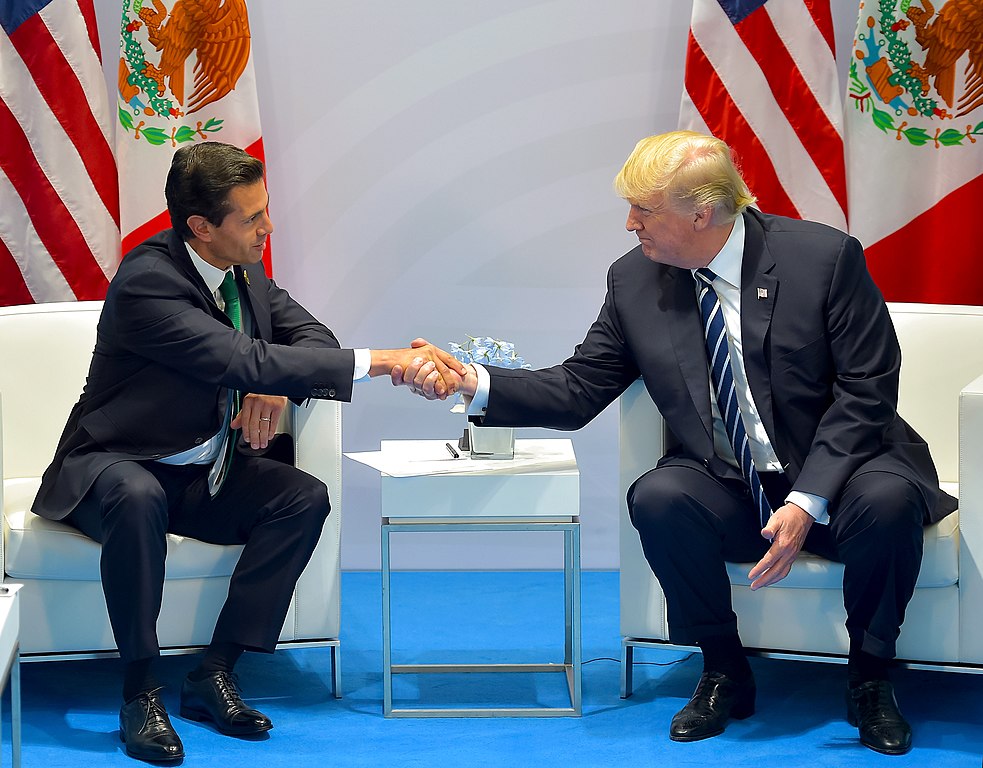Shortly after saying zero-tariff trade with the European Union isn’t good enough, President Trump told Congress to butt out of North American Free Trade Agreement (NAFTA) negotiations.
The United States and Mexico reached an agreement on some concessions on a new NAFTA deal during recent negotiations. Canada and the U.S. didn’t agree to much when they met last week, and discussions will continue on Wednesday. Trump made a comment he thought was off-the-record suggesting he wouldn’t give Canada leeway in the talks, CNBC reported. The remark was published anyway, which has cast a pall over the discussions.
The U.S. viewpoint is that agricultural policy in Canada has hurt the sales of U.S. dairy products there, financially damaging Midwestern farmers in particular.
Trump has said he’d be happy with a bilateral deal with Mexico if Canada isn’t willing to agree to his demands. He reiterated that point on Twitter on Saturday.
“If we don’t make a fair deal for the U.S. after decades of abuse, Canada will be out,” he wrote. “Congress should not interfere with these negotiations or I will simply terminate NAFTA entirely & we will be far better off.”
In his tweets, Trump blamed NAFTA for the loss of millions of jobs.
“We were far better off before NAFTA — should never have been signed,” he wrote.
Members of both parties in Congress have criticized Trump’s stance, particularly how his tariffs have rebounded back to the U.S. in the form of higher duties on exported American goods that are already being blamed for job losses.
While joining Trump in the Oval Office as the agreement between the U.S. and Mexico was announced, Mexican President Enrique Peña-Nieto emphasized that he’d like to see a trilateral deal between the nations.
“I desire, I wish that the part with Canada will be materializing in a very concrete fashion, and we can have an agreement the way we proposed it from the initiation of this renegotiating process, a tripartite,” Peña-Nieto said.
But Trump said on Twitter there was “no political necessity” to keep the NAFTA band together.
The deal with Mexico will limit how low it can pay its workers, which should help the U.S. keep more manufacturing jobs at home. The $71 billion trade-in-goods deficit the U.S. had with Mexico last year was due in large part to the lower worker pay in that country.
The Office of the United States Trade Representative (USTR) reports that the opposite is true with Canada, with whom the U.S. sees an $8 billion goods and service surplus. That office noted, however, that it’s common for goods to be shipped through regional trade hubs without further processing before they are sent to their final destination. This means that “the international shipment of non-U.S. goods through the United States can make standard measures of bilateral trade balances potentially misleading,” USTR said.
Trump notified Congress on Friday, as required by law, of the impending deal with Mexico. Congress gets 90 days to review the deal. The notification left open the door for a deal with Canada.
Senior administration officials said the White House would likely provide text of an agreement to revise NAFTA to Congress within the next 30 days.
Trump told Bloomberg on Thursday that absolute free trade with the European Union wouldn’t be good enough for the U.S.
EU Trade Commissioner Cecilia Malmstrom told the trade committee of the European Parliament earlier that day that the union is “willing to bring down even our car tariffs to zero, all tariffs to zero, if the U.S. does the same,” which prompted the question to Trump.
Evidently, the president is trying to convince European consumers they need to buy Chevrolet instead of Mercedes-Benz.
“Their consumer habits are to buy their cars, not to buy our cars,” he said.
Nobody better tell him about Japan.
The U.S. imposes a 2.5 percent tariff on smaller vehicles entering the country from the EU, and a 25 percent tariff on light trucks. The EU imposes 10-percent duties on all automobiles imported from the U.S.
Trump told Bloomberg that the EU is “almost as bad as China, just smaller” and reiterated his plan to impose tariffs on another $200 billion in Chinese goods.
Two weeks ago, the U.S. and China traded tariffs on $16 billion of each other’s goods — such items as steam turbines and plastic tubing from China were levied, while diesel fuel and chemical items from the U.S. were hit with additional taxes. The two countries have now implemented 25 percent tariffs on $50 billion of each other’s products.
























